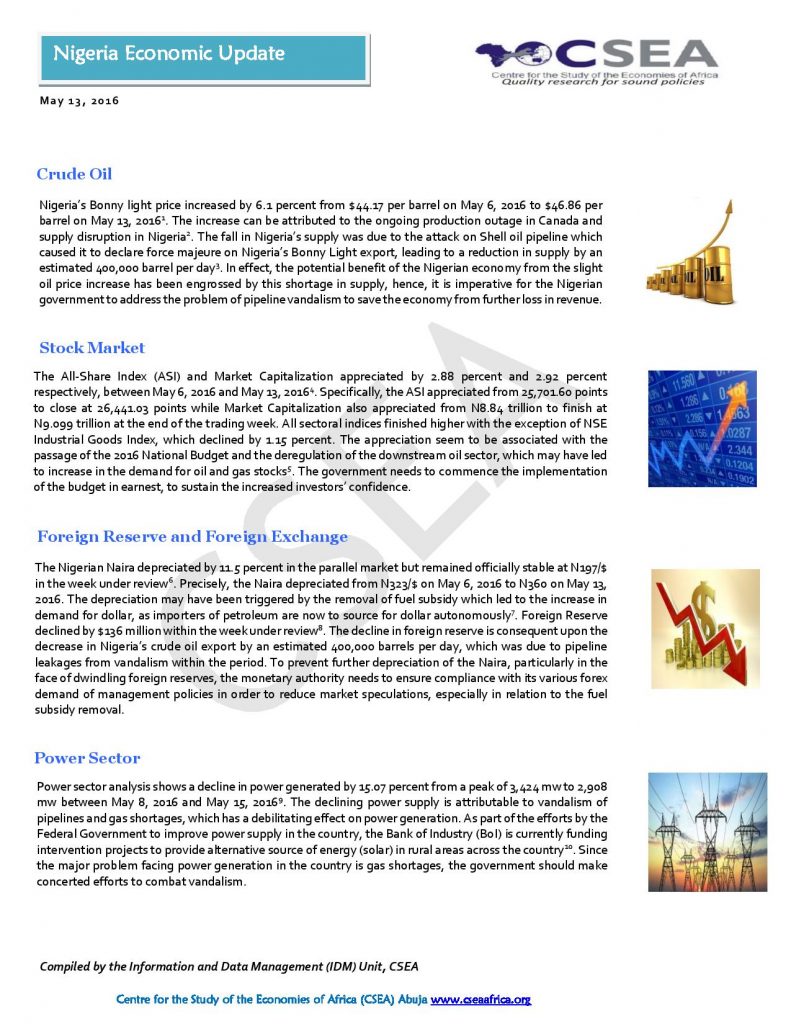Macroeconomic Report & Economic Updates

May 20, 2016
Nigeria Economic Update (Issue 22)
Power
sector analysis shows a decline in power generated by 15.07 percent from a peak
of 3,424 mw to 2,908 mw between May 8, 2016 and May 15, 20169. The
declining power supply is attributable to vandalism of pipelines and gas
shortages, which has a debilitating effect on power generation. As part of the
efforts by the Federal Government to improve power supply in the country, the
Bank of Industry (BoI) is currently funding intervention projects to provide
alternative source of energy (solar) in rural areas across the country10.
Since the major problem facing power generation in the country is gas
shortages, the government should make concerted efforts to combat vandalism.
